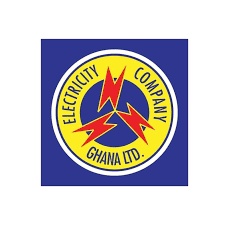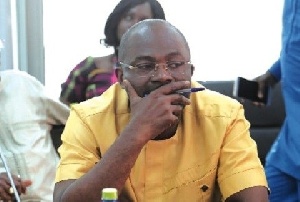Business News of Friday, 4 April 2025
Source: www.ghanawebbers.com
ECG's procurement scandal exposes systemic failures
 ECG
ECG
The Electricity Company of Ghana (ECG) is facing a procurement crisis. This situation has raised concerns about the integrity of public institutions in Ghana. Over 1,300 containers worth GH¢6 billion have gone missing. This incident highlights issues of negligence, mismanagement, and possible corruption.
Energy Minister John Abdulai Jinapor reported these findings. They have sparked a nationwide outcry for reforms. The mishandling of supplies has led to avoidable costs exceeding GH¢909 million. This serves as a reminder of the need for transparency and accountability.
The crisis deepened when the procurement director admitted most containers were acquired during his tenure. His statement revealed a culture of negligence and poor planning at ECG. He claimed over-purchasing occurred due to "pressure from above." This raises questions about senior management's role and political influence in procurement decisions.
Concerns also arose regarding how contracts were awarded at ECG. Former Managing Director Samuel Dubik Mahama allegedly handpicked suppliers without fair competition. This violates the Public Procurement Act, 2003 (Act 663), as amended. Such practices waste taxpayer money and foster corruption.
Additionally, some containers may have been left at the port intentionally. Clearing contracts worth GH¢159 million were awarded to private companies despite ECG having its own clearing unit. This raises ethical concerns about decision-making motivations.
Procurement expert Michael Kofi Quashie highlighted legal implications of these breaches. He stressed that compliance with procurement laws is crucial. The High Court has prosecuted individuals for violating these laws before.
Quashie believes the government must act decisively in response to this crisis. He suggests deploying forensic auditors to review procurement processes and financial records at ECG. Interviews with key personnel are essential to identify irregularities or signs of corruption.
He also advocates for strengthening legal frameworks governing public procurement. Strict compliance with laws should be mandated, along with independent audits and oversight measures. Public access to procurement information is necessary to restore trust.
Whistleblower protections are vital for promoting transparency and accountability, according to Quashie. Empowering individuals who report corruption can help build public confidence in addressing concerns.
The ECG procurement crisis has sparked discussions on reforming Ghana's public institutions urgently. As investigations continue, the public awaits outcomes and consequences for those responsible.
In conclusion, revelations about ECG's practices serve as a wake-up call for Ghana. Financial losses and misuse of funds have shaken public trust significantly. However, this crisis offers an opportunity for transformative change toward transparency and accountability in governance.
By addressing systemic issues that allowed these breaches, the government can restore confidence in state-owned enterprises' stewardship of resources. The ECG scandal underscores the need for fundamental shifts in how public institutions operate today.










